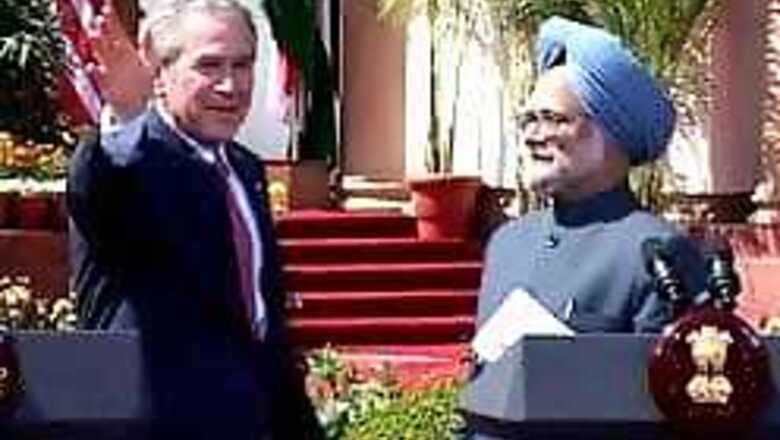
views
Washington: The crucial civil nuclear deal between India and US may have been sealed, to the delight of many in political corridors, but it is a still long way before India is formally welcome into the global nuclear family.
The last word on the nuclear agreement is still up for grabs. The US and India may have finalised the details after months of negotiations, but all that could still change once the US Congress gets into the act.
From swift criticism by some US Congressmen, to cautious support from others, it's clear the Indo-US civilian nuclear agreement is unlikely to be a cakewalk on Capitol Hill.
President Bush is trying to sell the nuclear agreement with India on three fronts: as an energy initiative that will help reduce India's need for fossil fuels; a business opportunity for American companies; and a strategic alignment of two democracies.
Which of these is likely to appeal most to the Capitol Hill?
"India will find support on Capitol Hill from Congressmen focused on democracy promotion because India is the world's largest democracy. The support will also come from those who are concerned about China because they see India as a counterweight to China and strategic engagement with India as important. That's a substantial fraction of Congress," Council on Foreign Relations, Michael Levi, said.
PAGE_BREAK
Levi's opinions are echoed by many who feel China could be an important consideration for the US Congress.
"I think from the administration's perspective this deal only makes sense when you consider China. The US sees China as a long-term competitor in Asia. It sees India as being a hedge against Chinese hegemony in Asia. Whether India likes that or not, the administration sees things that way," Carl Robichaud from The Century Foundation, says.
Analysts point out that more than India's nuclear program itself, the prospect of proliferation is a larger concern.
"If you look at the AQ Khan network for example, most of their commercial dealings were with companies based in Germany, Switzerland and the Netherlands. These were civilian nuclear companies and individuals involved in civilian power who were dealing and trading in the black market in some of these cases," Robichaud says.
Before ratifying the deal, analysts expect the US Congress is likely to insist on measures including capping the size of India's weapons arsenal and a moratorium on future testing and fissile material production for its nuclear weapons program.



















Comments
0 comment